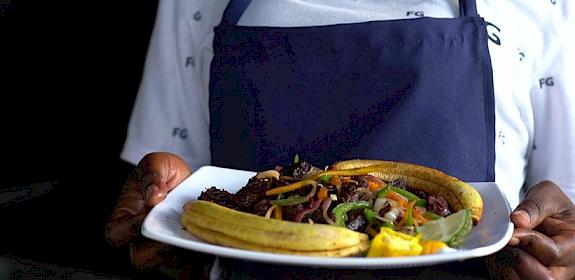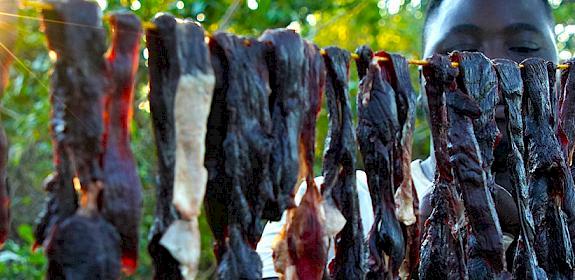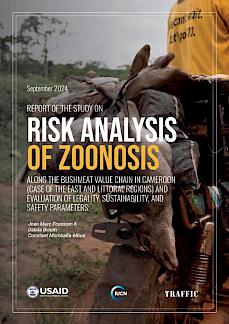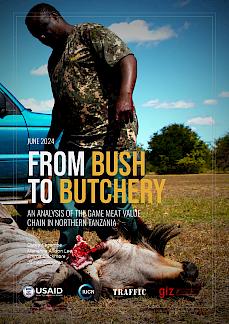
CITES CoP19 to consider practical ways to deal with wildlife trade and risks of zoonotic spillover.
In March 2020, the COVID-19 outbreak rippled through countries around the globe with devastating speed. As millions worldwide succumbed to the coronavirus, governments were faced with an unprecedented public health emergency and measures to halt the pandemic forced them to close their borders and lock down cities and communities. Global supply chains were severely disrupted, damaging livelihoods and economies around the world. Significantly, early reports of the source of the outbreak being a market where wild animals were on sale put wildlife trade firmly in the spotlight of this global emergency. The potential role of wild animals in the emergence and transmission of zoonotic disease has been elevated to new levels of discourse and research as a result. Although the actual source of COVID-19 is yet to be confirmed, its massive global impact has highlighted potential health risks of wild animal trade, particularly at interfaces where humans, wildlife and domesticated animals co-mingle, and emphasised the merits of cross-sectoral precautionary action.
Effective management and regulation of wildlife harvest, use and trade are critical for conservation, animal and human health, and for combatting illegal, unhealthy or unsustainable practices. The potential role CITES can play in ensuring this effective management and regulation for international wildlife trade is clear. However, for this effectiveness to be realised, there is a need for sound guidance, standards, risk assessment, risk management tools and effective compliance monitoring and law enforcement measures.
The COVID-19 pandemic has also highlighted the close link among human, animal, and environmental health. The need for strengthening multisectoral and multidisciplinary collaboration that will integrate public health, animal health and biodiversity conservation approaches to reduce the risk of future zoonotic spillover events has been brought into sharp relief. There is growing recognition that efforts by just one sector cannot prevent or eliminate risks of future zoonotic disease outbreaks, and a well-coordinated approach in addressing human, animal, and environmental health i.e. a One Health approach is required.
Parties at CITES CoP19 will discuss several documents relevant to advancing this agenda. A series of draft Decisions from the Standing Committee in CoP19 Doc 23.1 are aimed at reducing risks posed by international trade in wild animals to future zoonotic disease spillover events.
The Standing Committee calls on the CITES Secretariat to work with the World Organisation for Animal Health (WOAH, formerly known as OIE) to develop a joint programme of work to collaboratively help fill knowledge gaps and identify effective and practical solutions for reducing pathogen spillover risk in wildlife supply chains. The document also calls for the Secretariat to identify opportunities for additional practical collaboration with other international organisations such as FAO, WHO and ICCWC. These opportunities for collaborative action in reducing the risk of zoonotic disease transmission in international wildlife trade supply chains would then be considered by the Animals Committee and the Standing Committee. In addition, the Standing Committee has been asked to consider the development of a Resolution on actions CITES Parties and others could take to advance a One Health approach as it pertains to international wildlife trade.
In addition, CoP19 Doc 23.2 proposes a draft Resolution which contains elements that are consistent with and complementary to some of the draft Decisions proposed by the Standing Committee in CoP19 Doc 23.1, particularly those that are related to encouraging cooperation and collaboration with other relevant organisations such as the OIE, FAO and WHO.
The proponents of this draft Resolution, namely Côte d'Ivoire, Gabon, The Gambia, Liberia, Niger, Nigeria and Senegal, have taken the initiative to propose elements that go beyond the Standing Committee's recommendations. For example, it is vital that efforts to reduce the risk of zoonotic disease transmission be addressed at the national level as well as the focus on international trade. While the Standing Committee's draft Decisions are primarily directed at the CITES Secretariat and the scientific and Standing Committees, there are none that specifically call for action by the Parties.
The draft Resolution by contrast focuses on practical recommendations that can be implemented by the Parties at the national level: developing synergies with national animal and public health authorities, the development of One Health CITES Action Plans by Management Authorities, as well as undertaking risk analyses, training and public awareness activities.
The proponents of this draft Resolution argue that to delay action by Parties until CITES CoP20 does not reflect the great urgency to prevent the risk of future pandemics as a result of zoonotic pathogen emergence and disease transmission.
The effective implementation of the proposed Resolution by Parties will depend upon robust delivery of recommended actions, identification of any implementation gaps and weaknesses, and remedial measures where needed. In this regard, the proposal for the establishment of CITES One Health Expert Panel can provide such a mechanism and should be considered. Such a Panel can also be tasked with the development of a work programme that can provide the structure and specific targeted and time-bound actions needed to monitor progress effectively.
The scope of these recommendations is wide-ranging, and the draft Resolution text provides a good basis for further refinement at CoP19. An in-session working group for Agenda Item 23 should be established at CoP19, if necessary, to consider the Standing Committee outputs in conjunction with the draft Resolution text proposed for consideration by CITES Parties.









